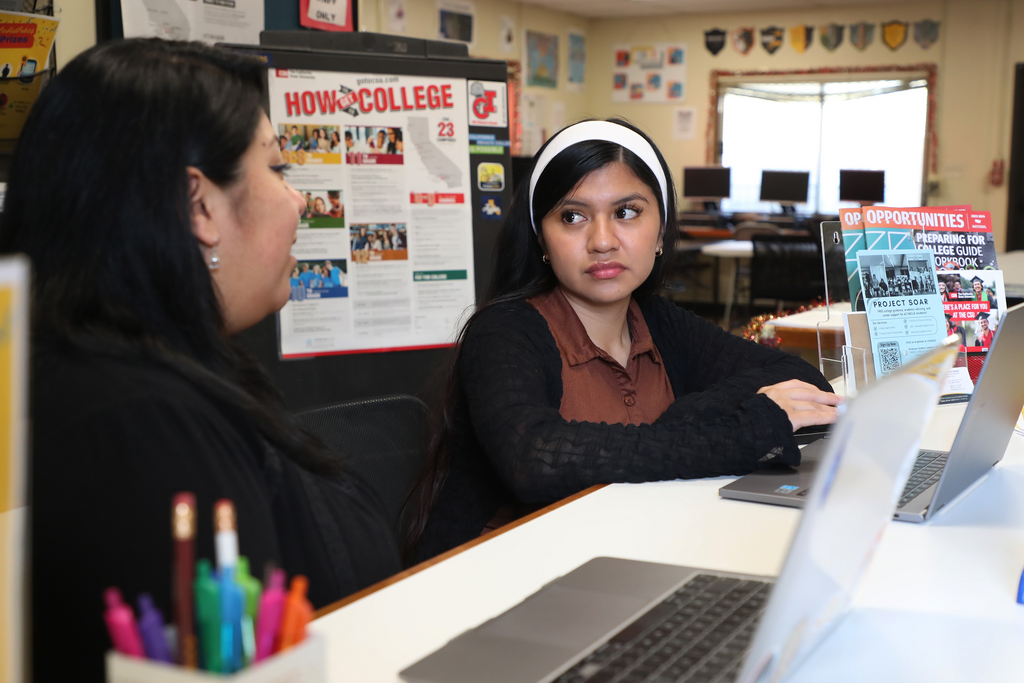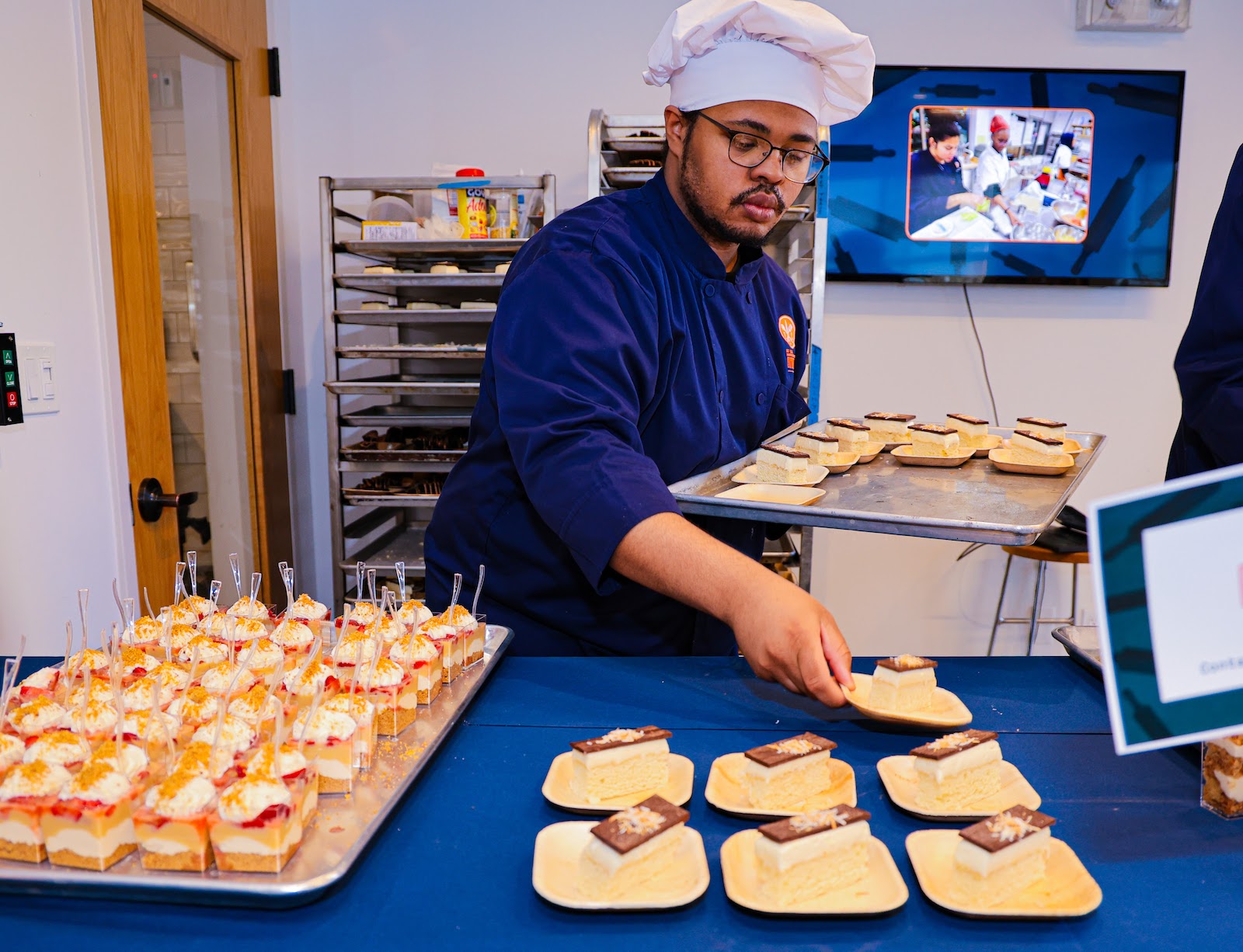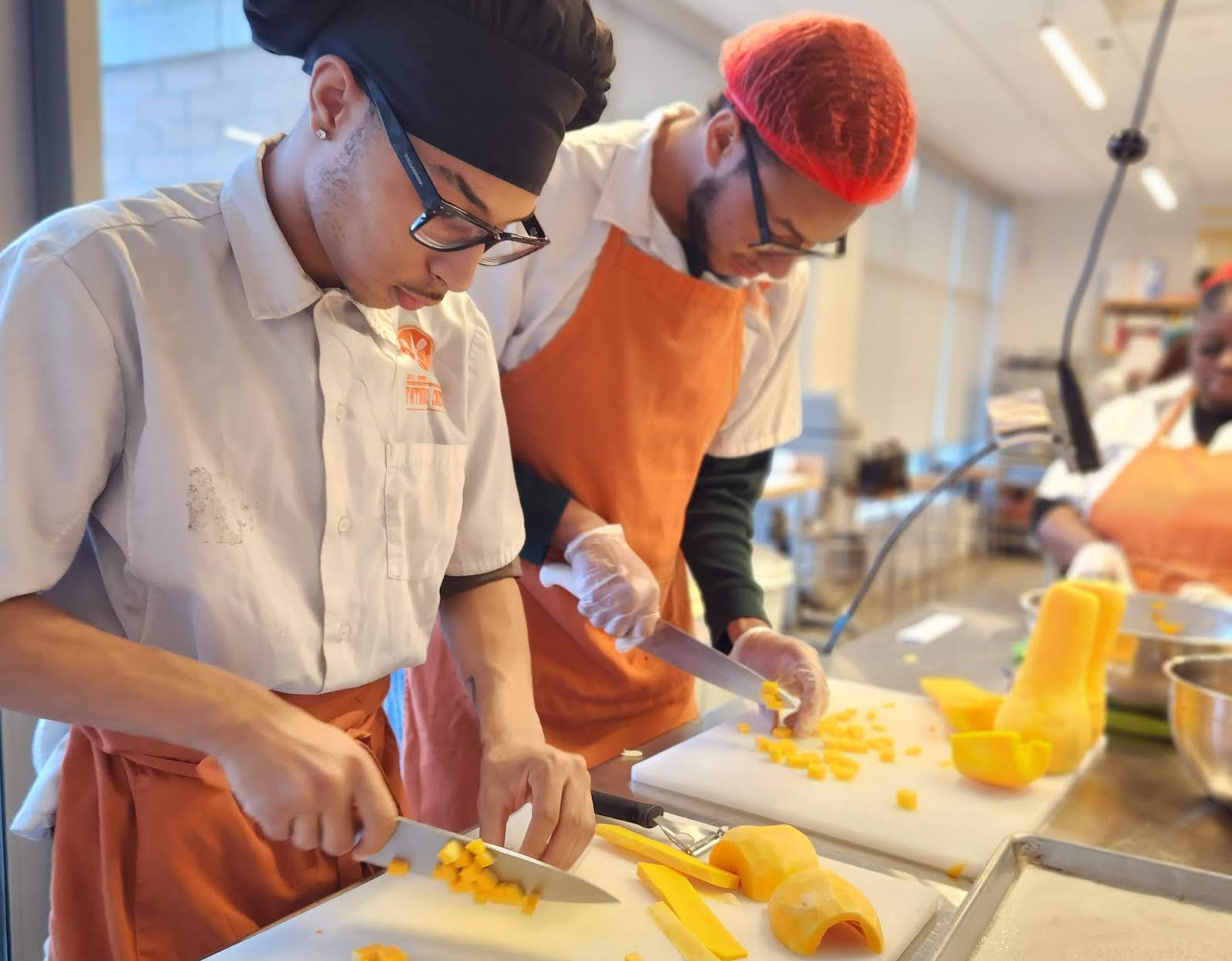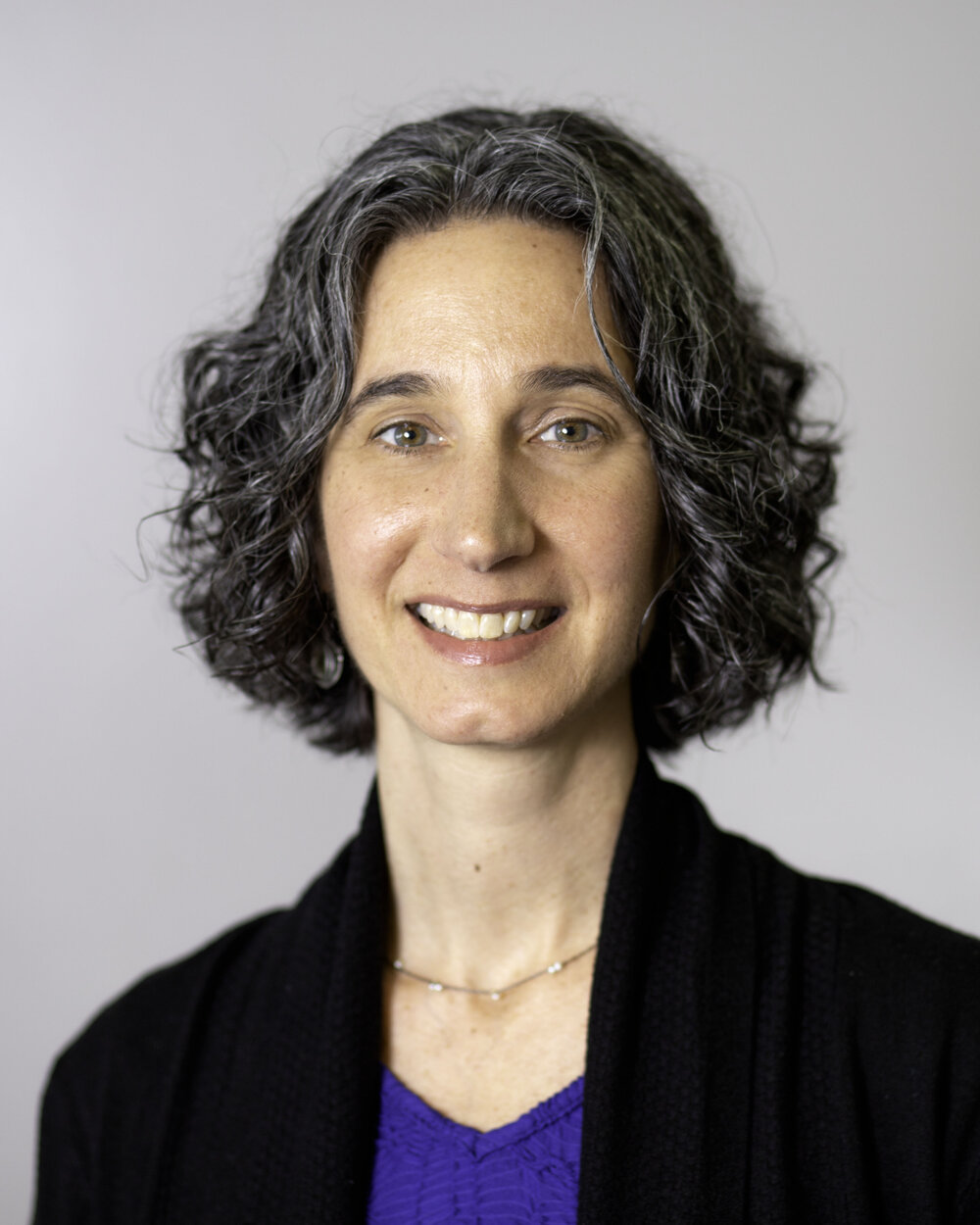
How learning kitchen skills can serve up other career opportunities

Case Studies
Spotlight on the work of Future Chefs, a Boston-based organization chosen for the 2025 Youth Skills and Employment Accelerator. Future Chefs shows that kitchen training young people isn’t just about cooking - it opens doors to diverse career paths in food service, hospitality, nutrition, and beyond.
Young people in Boston are learning that culinary skills are a recipe for success in all walks of life.
The nonprofit organization Future Chefs offers high school students access to kitchen-based learning, paid after-school work, and coaching/mentoring support in the early years after high school. Their model is to support young people to prepare for both culinary careers and successful futures in other jobs and trades.
“While working in our kitchen, young people gain both ‘knife skills and life skills’. We offer them the space, support, and encouragement to take healthy risks and lead, and that is how they invest in their future,” said Mark DaCruz, Executive Director of Future Chefs.
The organization uses the kitchen environment and culinary skills to teach a variety of job-readiness attributes, such as communication, time management, teamwork, self-expression, and leadership.
Future Chefs was chosen by the Global Business Coalition for Education to take part in the 2025 Youth Skills and Employment Accelerator. With employers across all sectors in the United States struggling to find young talent with the expertise they need, the Accelerator is part of a nationwide drive to ensure that by 2030 all young Americans will have the skills needed to find work in a rapidly-changing job market.
Future Chefs believes that being part of the 2025 cohort will be hugely helpful as it expands its reach and ability to support young people in Boston. The Accelerator equips nonprofits with the tools and support they need to make a real difference in the lives of young people from underserved communities.

Future Chefs offers three programs that are completed in sequence
Data from 2024 shows that in the Boston public school system, 23% of low-income students do not graduate from high school in four years. In Massachusetts generally, one in four young adults aged up to 24 are not working.
Stephanie Cogen, Director of Development and Finance at Future Chefs, said: “We are working on how to engage corporate partners in preparing our young people for success after high school. We hope through this program that we learn how others have successfully done this and can create our initial plan for developing this stream of support and partnership.”
Future Chefs also believes the Accelerator’s peer-to-peer support will provide better connections across the country and give the organization insights into new practices which can be implemented as it widens its impact.
Founded in 2008, Future Chefs offers three programs that are completed in sequence:
- FC Prepares. A short-term introductory program teaching basic culinary techniques. Participants explore possible culinary career paths and begin to develop essential skills.
- FC Delivers. A paid two-year after-school work and service program for high school juniors and seniors. Includes culinary and essential skill development, social/emotional learning, and planning for work and life after high school.
- FC Sustains. A program for continued engagement and support after high school graduation.

We are working on how to engage corporate partners in preparing our young people for success after high school
Stephanie Cogen, Director of Development and Finance at Future Chefs
These three phases together are the School to Career Program, which provides culinary and essential skills training, opportunities for youth leadership, coaching from industry experts, and support to pursue a broad range of culinary and other professional careers.
High school student Sebastian is a hard worker and great team player, but struggled with school attendance and was expelled last fall. But with the support of Future Chefs youth worker Clarence, Sebastian learned how to take small steps to get back on track and improve his time management and routines. Clarence helped him enrol in another high school, and he is on track to graduate in December 2025.
“At Future Chefs, his confidence has grown and he has explored apprenticeship and union membership as options for becoming an electrician,” said DaCruz. “Sebastian has the capacity to reach his goals – and Clarence and Future Chefs are there with the guidance, supportive relationships, and resources that any teen needs.”
Future Chefs and the other organizations in the 2025 Accelerator will join the alumni network of 28 previous participants which collectively have positively impacted more than 250,000 young people. When they complete the program, nonprofits and their leaders stay in the growing network – helping them to work with others and get peer support.
Businesses that support the Accelerator have opportunities to enhance brand recognition and strengthen community ties. They can also provide pro-bono products and services to support participating organizations.
Next resource

